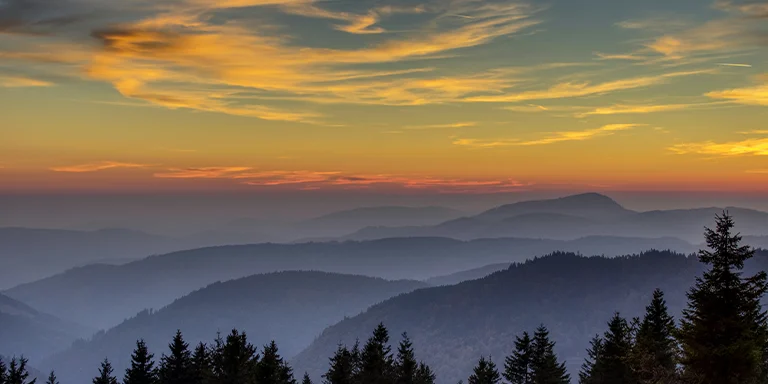

Whether you’re an experienced camper or just starting out, you might wonder when choosing a tent: If you’re camping alone, should you pick a 1 or 2 person tent?
In this post, we’ll delve into the tent dilemma. We’ll examine factors to think about, the pros and cons of both types, and assist you in making a wise choice for your solo camping adventures.
Let’s get started.

In many cases, choosing a 2 person tent instead of a 1 person tent doesn’t result in a significant increase in weight or cost. Moreover, it comes with the added benefit of extra internal space.
However, before finalizing your shelter decision for your next adventure, consider these key factors:
Adequate gear storage is essential for a comfortable camping experience. Consider the following:
Your cooking preferences can also influence your tent choice:
When deciding on a tent for solo adventures, consider the weather conditions you may encounter:
When on solo adventures, the weight and correlated packability of your tent are crucial considerations. Here’s what you need to know:
Now, let’s put all that we have covered so far into a quick-to-read comparison table:
| 1 Person Tent | 2 Person Tent | |
|---|---|---|
| Gear Storage | Limited space for gear. Good for minimalist packing. | More interior space for backpacks, gear, and belongings. |
| Cooking | Less room for elaborate cooking. Better for basic meals. | More space for cooking equipment and preparing meals inside. |
| Weather | Easier to stay warm. More prone to condensation. | More room to move around in bad weather. Less condensation. |
| Weight | Typically lighter. Ideal for ultralight backpacking. | Heavier, but some high-end models are exceptions. Significantly heavier if 4-season. |
So, which option should you choose?
You should choose a 1 person tent if…
You should choose a 2 person tent if…
For inspiration, popular lightweight yet durable tent options that come in 1 or 2 person sizes include:
| Make / Model | Size | Weight (g) |
|---|---|---|
| Fly Creek HV UL1 Solution Dye | 1-P | 1lb 11oz (765) |
| Fly Creek HV UL2 Solution Dye | 2-P | 2lb 4oz (1020) |
| Nemo Hornet Elite OSMO 1P | 1-P | 1lb 12.6oz (812) |
| Nemo Hornet Elite OSMO 2P | 2-P | 2lb 0.9oz (935) |
| 3F UL Gear Floating Cloud 1 | 1-P | 2lb 15oz (1343) |
| 3F UL Gear Floating Cloud 2 | 2-P | 3lb 15oz (1780) |
In summary, 1 person tents are all about being compact and lightweight, perfect for those who want to keep their hiking load minimal. However, it’s crucial to understand that they have limited space.
On the flip side, 2 person tents, while a bit heavier, provide extra room for storing gear, better ventilation, and added comfort in tough weather.
When picking your tent, think about how you like to camp, the expected weather, and your cooking preferences. Also, make sure the tent suits the seasons of your trips.
That’s all for now. We hope we’ve simplified your decision. And don’t stress too much; you can always sell your tent on Facebook Marketplace if needed.
Happy camping!
Interested in an ultralight 1-person or 2-person tent? Check out our TOP 5 guides that cover the lightest tents on the planet.
Decathlon and Naturehike offer very affordable tent options usually ranging from $50-150 for 1-2 person sizes. If you’re willing to buy last season’s model, steep double digit discounts can also be found at REI and Campmor. Our favorite affordable 1-2 person tents are from 3F UL Gear. With some savvy shopping, finding an affordable yet durable tent for 1-2 people is definitely achievable.
Sleeping two people in a one-person tent can work in emergencies, but it’s not a great idea for regular camping. The small space can be uncomfortable, and you’ll likely have issues with condensation, which can make things damp inside. It’s better to use a tent that’s designed for the number of people camping to stay comfy.
A normal one-person tent for camping typically weighs around 3 to 4 pounds (1.4 to 1.8 kilograms). It’s worth noting that 3-season tents, designed for spring, summer, and fall use, are considerably lighter compared to 4-season tents designed for winter camping. If you’re looking to reduce weight while backpacking, there are also ultralight options available that can weigh as little as 2 pounds (0.9 kilograms).
The best way to prevent condensation buildup in a 1 person tent is to use a groundsheet and make sure to fully deploy the rainfly with sturdy stakes. If you are using a trekking pole tent, make sure that the poles are set at the correct height. A taut rainfly helps block condensation from forming on the inside of the outer tent walls while still allowing air flow through the mesh inner tent. Using a groundsheet creates a moisture barrier between you and the damp ground. With good airflow from the mesh and protection from a rainfly, a 1 person tent can remain relatively condensation-free, even with just one camper inside. It’s also a good idea to bring a towel to wipe up and dry any excess condensation that does accumulate.